Enterprise training for Ezulwini youth
From my short time in Eswatini, I think it is fair to say that the experiences and lessons I have gained in my sessions here are unrivalled compared to anything I could have possibly learned in a classroom thousands of miles away back home. For those of you who don’t know, I have been fortunate enough to have been able to contribute to the entrepreneurship classes hosted by All Out Africa Foundation aimed at building the skills that many of the youth here currently regrettably lack, but yet need in order to succeed in building their own profitable startups.
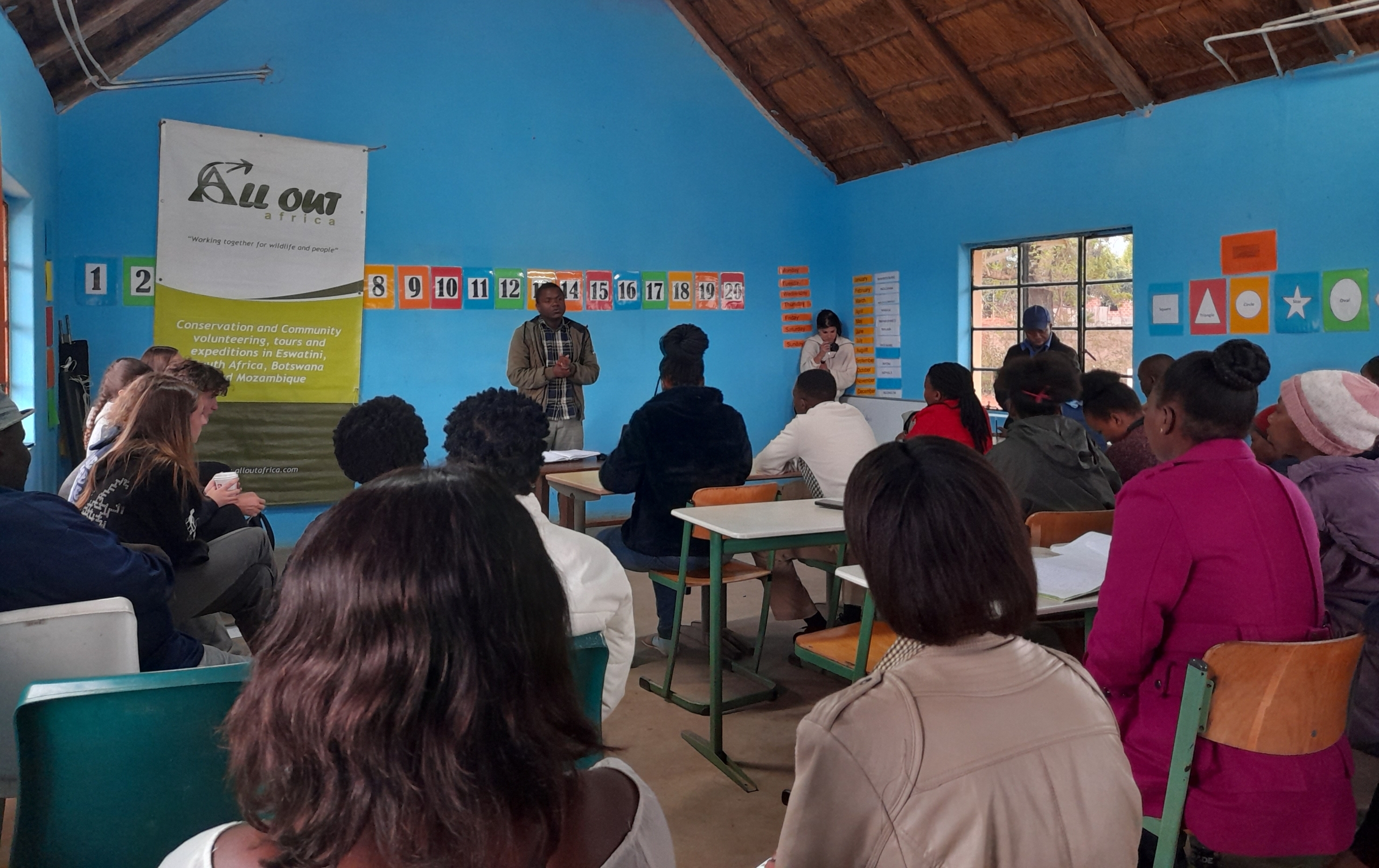
An aspiring bean farmer Melusi Phiri presents his business idea
As many of you may know, in present-day Eswatini among the youth there is an unemployment rate ranging from 40%-70% throughout the kingdom, something that has only been exacerbated by the covid pandemic. Whilst attending the classes, I have tried to do my best to research and present ideas that may be of relevance to my classmates, ideas centred around building a profitable and efficient startup. Below is a passage taken from the research I did for the class.
‘When you start a business it is important to look for potential investors. They can be useful for a number of reasons. Firstly, they will provide seed capital to start the business. Secondly, they assist in business planning for a startup. Thirdly, they are profit-oriented, hence they will ensure that capital is invested in the correct way and can be consulted with. There are a number of investors in Eswatini who offer such services. The Small Enterprises Development Company (SEDCO) is a Government supported organisation established in 1970 with the mandate to create, develop and promote Small, Micro & Medium Enterprises (SMMEs) throughout the Kingdom of Eswatini. This makes it one of the largest and most reputable investors. The Industrial Development Company Of Eswatini (IDCE) is another example of a well-known lender that offers agricultural, corporate and SME, Small and Medium enterprises, and loans.
SME loans are targeted and suitable for every sector of the economy for purposes of funding goods or services required by the business. An example of the terms for an SME loan from Industrial
Development Company of Eswatini are:
Minimum: E10 000 (Swazi Lilangeni)
Maximum: E1.5 million
Repayment Period: 3 – 5 years
Security: should be able to cover 100% of the total debt
Promoter’s Contribution: a minimum of 20% of the total project total cost
Although attracting investors is important for any startup, my research has not been restricted specifically to this in my time here. The topics in the past three weeks have ranged from the importance of networking to the standards for morally right and wrong conduct in business, such as the battle of legal vs ethical. A lot of my research centred around how to conduct and submit a coherent business plan, as this is what the majority of students here were most absorbed with, in the last few weeks. I managed to highlight different aspects of an effective business plan; such as the importance of primary and secondary research in a SWOT analysis, and all-encompassing competitor analysis.
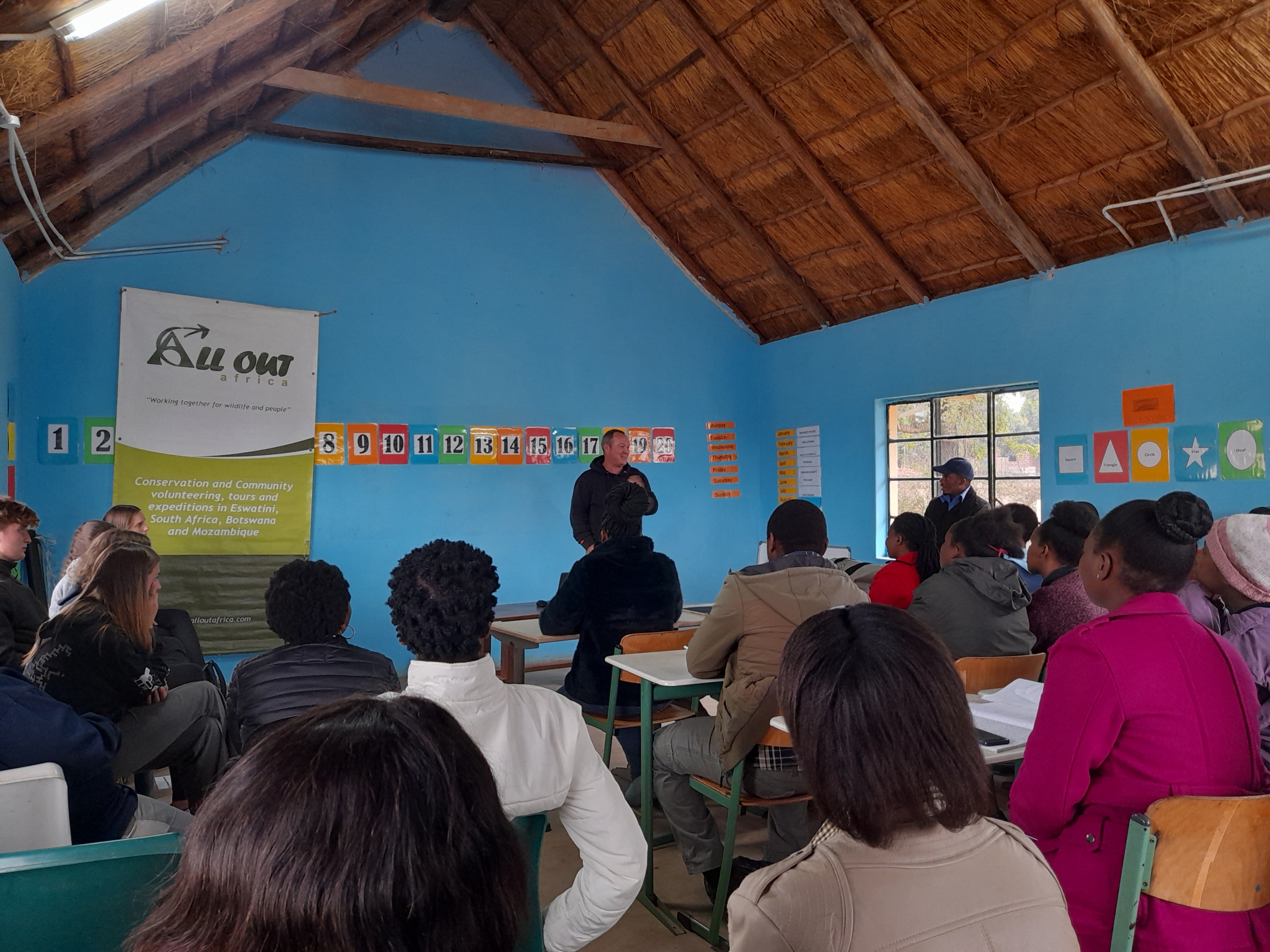
Mr Mike Roach shares his experience and guidance with the young entrepreneurs
This is not to say that when conducting my research everything proceeded steadily 100% of the time. Although most of the time proceedings ran smoothly, the most notable obstacle I encountered was finding ways to keep the points that I was expressing relevant in the context of Eswatini. In order to help myself accomplish this, I found what helped me most was identifying examples of entrepreneurs who had succeeded themselves in the kingdom. Eswatini has a history of creating successful entrepreneurs itself, most notably the likes of Sanele Dlamini and Phiwa Nkambule. Sanele Dlamini established her clothing retail and beauty business, Flexy, from a need to create an economic future for herself; Despite graduating with a Bcom degree, she found that after university she couldn’t find reliable employment. Now she collects fashion pieces from all around the world and sells them in Swaziland and a few surrounding countries such as Mozambique and South Africa. On the other hand, Phiwa Nkambule is a technology entrepreneur and internet activist best known for co-founding Riovic and leading it as its CEO. He previously founded Cybatar and sat on the board of the Royal Science and Technology Park in Eswatini. In June 2018, Phiwa was named in the Forbes Africa 30 under 30 list of most promising entrepreneurs in the technology category, and in October 2018 named in Destiny Man’s Power of 40 lists, a list of 40 trailblazers under the age of 40.
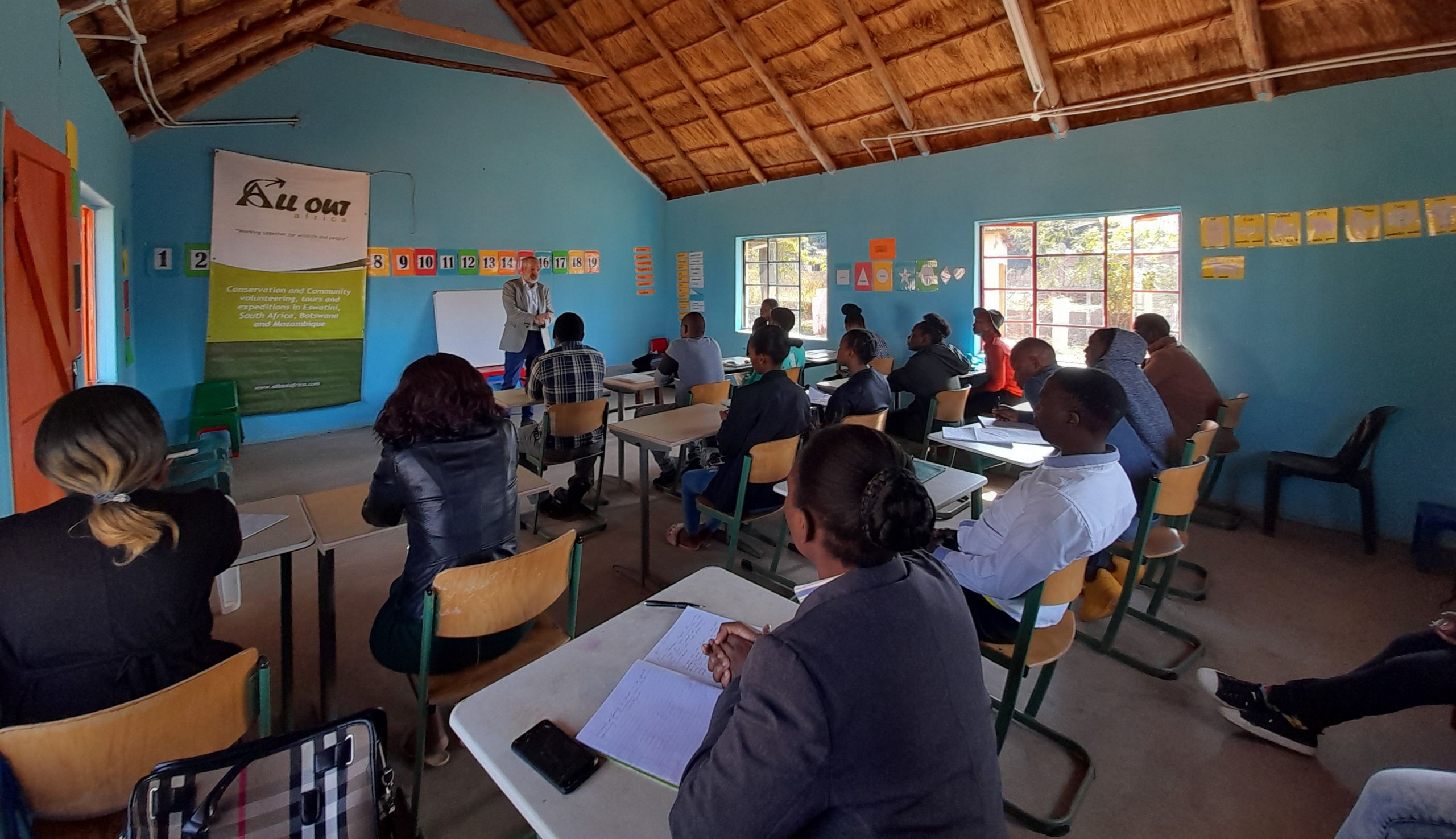
The Honorable British High Commissioner was pleased with the business ideas shared on the day.
Having already heard the ideas behind the businesses here, I feel assured that some definitely have the facilities to become successful in the future, following in the steps of these two. Ideas ranged from selling electrical services to exporting poultry abroad as far as the UAE as well as developing a mobile system where patients are more easily able to track their daily symptoms; thus grossly helping medical professionals in diagnosing ailments quicker and supplying cures more efficiently. What has become clear in my short stint is that this is a deeply resourceful group of young adults who definitely want to ameliorate their future, and I have felt fortunate to learn from them and try to help them in any way I can.
Nonetheless, this summary wouldn’t be complete without me mentioning one of the highlights of the past 3 weeks, having the opportunity to have Mr Kim Roques, Mr Mike Roach and the honourable British High Commissioner, Mr Simon Boyden share their experience and guidance they had for the young entrepreneurs. I honestly believe that their words struck a chord with the young adults in the group and that they will heed their advice in the near future. I would not be surprised that if I was to return in 5 years’ time, I would see many of these businesses prospering with the effort having been put in.
Written by Pama Alexander, Microfinance intern

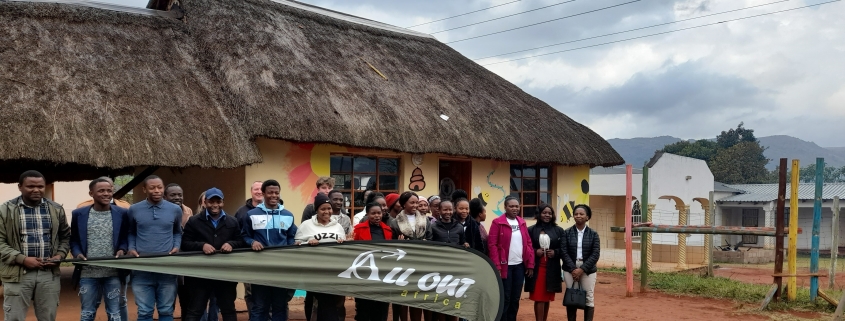 Simise
Simise 
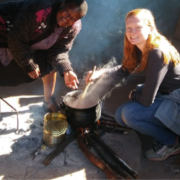
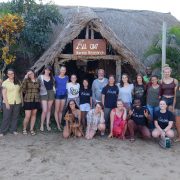

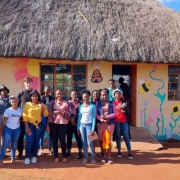 Kim Roques
Kim Roques 
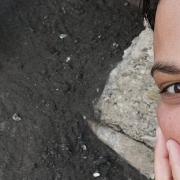

 Kim Roques
Kim Roques 
Leave a Reply
Want to join the discussion?Feel free to contribute!